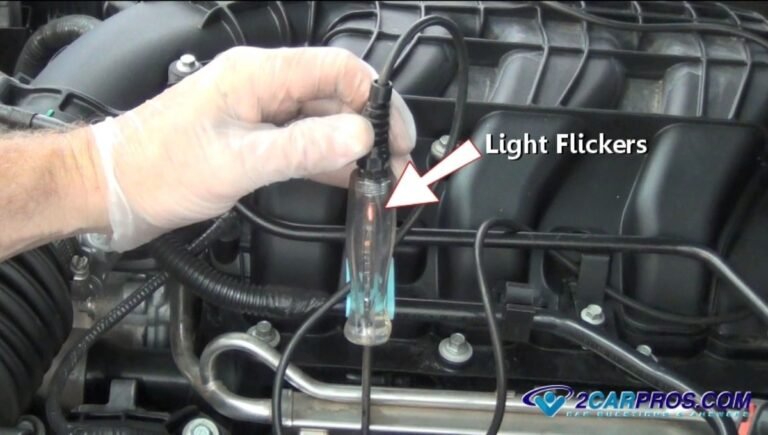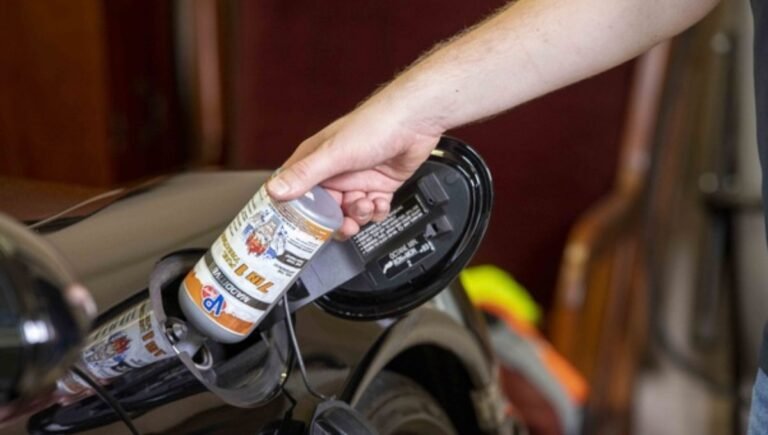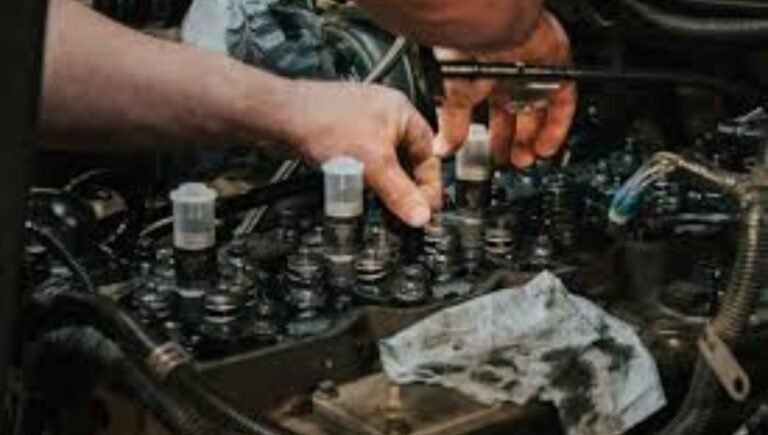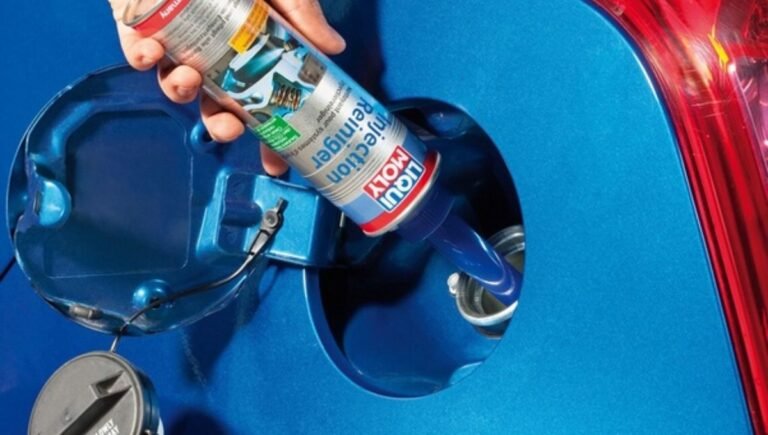When Should You Change Fuel Injectors: Optimal Timing Tips
You should change fuel injectors if you notice poor engine performance or decreased fuel efficiency. Worn-out injectors can lead to rough idling, misfires, and increased emissions, indicating the need for replacement.
Fuel injectors play a crucial role in delivering the right amount of fuel to the engine for combustion. Over time, they can get clogged or worn out, affecting the engine’s performance. By understanding the signs that indicate failing fuel injectors and knowing when to replace them, you can ensure that your vehicle runs smoothly and efficiently.
We’ll explore the common symptoms of faulty fuel injectors and discuss when it’s necessary to change them to maintain your vehicle’s optimal performance.
Introduction To Fuel Injectors
Fuel injectors play a crucial role in the efficient functioning of your vehicle’s engine. They are responsible for delivering the precise amount of fuel to the combustion chamber at the right time, ensuring optimal performance and fuel efficiency. Over time, fuel injectors can become worn or faulty, leading to a variety of issues that can affect your vehicle’s performance and economy. In this article, we will explore the role of fuel injectors in your vehicle and discuss the signs of worn or faulty injectors that indicate it’s time for a replacement.
The Role Of Fuel Injectors In Your Vehicle
Fuel injectors are like tiny precision nozzles that spray fuel into the engine’s combustion chamber. They are controlled by the engine control unit (ECU) and work in synchronization with other components to deliver the right amount of fuel for combustion. Their primary role is to atomize the fuel into a fine mist, allowing for efficient combustion and power generation. By precisely controlling the fuel delivery, fuel injectors help optimize engine performance, improve fuel economy, and reduce emissions.
Signs Of Worn Or Faulty Injectors
Over time, fuel injectors can become worn or develop faults that can negatively impact your vehicle’s performance. It’s important to be aware of the signs that indicate your fuel injectors may need to be replaced. Some common signs of worn or faulty injectors include:
- Engine misfires or rough idling
- Decreased fuel efficiency
- Difficulty starting the engine
- Stalling or hesitation during acceleration
- Excessive exhaust emissions
- Unusual engine noises
If you experience any of these symptoms, it’s advisable to have your fuel injectors inspected and, if necessary, replaced by a qualified mechanic. Ignoring these signs can lead to further damage to your engine and potentially higher repair costs in the long run.
In conclusion, fuel injectors play a vital role in the performance and efficiency of your vehicle’s engine. Understanding their importance and being aware of the signs of worn or faulty injectors can help you maintain your vehicle’s optimal performance and avoid costly repairs. If you suspect any issues with your fuel injectors, it’s best to consult a professional for a thorough inspection and appropriate action.
Mileage Indicators For Injector Service
Monitor your vehicle’s mileage indicators for injector service to determine the optimal time for changing fuel injectors. Regularly check for signs of decreased performance and increased fuel consumption to ensure efficient engine function.
Average Lifespan Of Fuel Injectors
Fuel injectors are vital for your car’s performance, as they ensure the proper delivery of fuel to the engine. However, like any other component, fuel injectors have a lifespan, and they eventually wear out. The average lifespan of fuel injectors is around 100,000 miles, but this can vary depending on several factors. Some factors that can affect the lifespan of fuel injectors are the quality of fuel you use, the driving conditions, and how well you maintain your vehicle. If you notice any signs of a failing injector, such as a rough idle, poor acceleration, or reduced fuel efficiency, it’s essential to have them checked as soon as possible.Mileage Benchmarks For Maintenance
To keep your fuel injectors in good working condition, it’s essential to follow a regular maintenance schedule. One way to determine when to service your fuel injectors is by using mileage benchmarks. For example, some automakers recommend fuel injector service every 30,000 miles, while others may suggest every 60,000 or 90,000 miles. Your vehicle’s owner manual will provide you with specific recommendations for your make and model. It’s important to follow these guidelines to avoid costly repairs down the line. Neglecting to service your fuel injectors can lead to a buildup of dirt and debris, which can cause them to clog or fail altogether. To determine when to change fuel injectors, there are several mileage indicators to look out for. Here are some of the most common:- Reduced fuel efficiency
- Poor acceleration or power loss
- Rough idle or stalling
- Engine misfires
- Unusual engine sounds
- Check Engine light is illuminated
Performance Symptoms To Watch For
Keep an eye out for signs of poor engine performance, such as rough idling, misfires, and decreased fuel efficiency. These symptoms could indicate a need to replace your fuel injectors. Don’t ignore these issues, as worn-out injectors can lead to engine damage and higher emissions.
Decrease In Fuel Efficiency
If you notice that your vehicle is not getting the same gas mileage as it used to, it could be a sign that your fuel injectors need to be changed. Dirty or clogged injectors can cause your engine to work harder, which in turn uses more fuel. This decreased fuel efficiency can be costly over time, so it’s important to address the issue as soon as possible.Engine Misfires And Rough Idling
If your engine is misfiring or idling roughly, it could be a sign that your fuel injectors are not working properly. When fuel injectors are dirty or clogged, they can’t deliver the proper amount of fuel to the engine, causing it to misfire or run rough. This can lead to a decrease in performance and could potentially cause damage to your engine if left unchecked. If you’re experiencing any of these performance symptoms, it’s important to have your fuel injectors checked by a professional. Changing your fuel injectors at the right time can help improve your vehicle’s performance and save you money on fuel costs.The Impact Of Fuel Quality
When it comes to the performance and longevity of your vehicle’s fuel injectors, the quality of the fuel you use plays a critical role. Understanding the impact of fuel quality on fuel injectors is essential for ensuring the smooth operation of your vehicle.
How Bad Fuel Affects Injectors
Low-quality or contaminated fuel can lead to a range of issues for your fuel injectors. Poor fuel quality can cause injector clogging, leading to reduced engine performance and fuel efficiency. Additionally, it can result in increased emissions and potential engine misfires. Over time, the accumulation of deposits from bad fuel can ultimately lead to the need for injector replacement.
Choosing The Right Fuel For Your Vehicle
When selecting fuel for your vehicle, it’s important to opt for high-quality fuel from reputable stations. Premium fuels often contain detergents and additives that help keep your fuel system clean, protecting your injectors from harmful deposits. Regularly using high-quality fuel can contribute to improved injector performance and overall engine health.
Regular Maintenance Checks
Regular maintenance checks are essential for ensuring the optimal performance and longevity of your vehicle’s fuel injectors. By conducting routine engine diagnostics and adhering to fuel system cleaning intervals, you can prevent potential problems and avoid costly repairs down the line.
Routine Engine Diagnostics
Regular engine diagnostics play a crucial role in identifying any issues with your fuel injectors. During these diagnostic checks, a qualified technician will use specialized equipment to monitor the performance of your engine and detect any irregularities. By analyzing the data collected, they can determine if your fuel injectors are functioning properly or if they require attention.
Fuel System Cleaning Intervals
Another important aspect of regular maintenance checks is adhering to fuel system cleaning intervals. Over time, fuel injectors can become clogged with deposits and impurities, hindering their performance. By following the recommended cleaning intervals provided by your vehicle’s manufacturer, you can ensure that your fuel injectors are clean and free from any obstructions.
During a fuel system cleaning, a specialized cleaning solution is introduced into the fuel system to remove any accumulated deposits. This process helps restore the efficiency of the fuel injectors and improves fuel atomization, resulting in better fuel economy and overall engine performance.
Maintaining a regular schedule for engine diagnostics and fuel system cleaning is crucial for the proper functioning of your fuel injectors. By taking these preventive measures, you can extend the lifespan of your fuel injectors and avoid potential issues such as decreased fuel efficiency, rough idling, or engine misfires.
Advanced Warning Signs
When it’s time to change fuel injectors, there are advanced warning signs that can help you avoid unexpected breakdowns and costly repairs. By recognizing these indicators, you can take proactive measures to address potential issues before they escalate.
Check Engine Light And Error Codes
If your vehicle’s check engine light illuminates or if you receive error codes related to the fuel system, it may be a sign that the fuel injectors are malfunctioning. These warnings should prompt a thorough inspection to diagnose the underlying cause.
Fuel Odor And Visible Leaks
Another indicator of potential fuel injector problems is the presence of a fuel odor or visible leaks around the injector area. These signs should not be ignored as they could signal a leak or a faulty injector that needs attention.
Manufacturer Recommendations
Fuel injectors play a crucial role in your vehicle’s performance. Manufacturers recommend changing them when you notice decreased fuel efficiency, rough idling, or engine misfires. Regular maintenance and following manufacturer recommendations will help keep your fuel system running smoothly.
Consulting Your Vehicle’s Manual
Your vehicle’s manual contains essential information on when to change fuel injectors.
It is recommended to refer to the manual for specific guidelines.
Following the manufacturer’s advice ensures optimal performance.
Oem Vs. Aftermarket Injector Considerations
OEM Injectors: Direct replacements by the vehicle’s manufacturer.
- Ensure compatibility and quality assurance.
- May be pricier but offer reliability.
Aftermarket Injectors: Third-party alternatives with varied quality.
- Consider reputable brands for quality assurance.
- May offer cost-effective options but verify compatibility.
Professional Assessment And Replacement
If your vehicle experiences rough idling, poor acceleration, or decreased fuel efficiency, it may be time to consider replacing the fuel injectors. Professional assessment can pinpoint issues and determine if replacement is necessary for optimal engine performance. Regular maintenance and inspection can help identify when fuel injectors should be changed.
When To Seek A Mechanic’s Expertise
Changing fuel injectors requires professional assessment to determine if replacement is necessary.The Process Of Changing Fuel Injectors
Mechanics evaluate fuel injector performance and replace if needed. – Signs of faulty injectors include rough idling and decreased fuel efficiency. – Specialized tools are used for inspection and replacement. – Expertise is crucial to ensure proper installation and functioning. – Thorough testing follows replacement to verify optimal performance. – Regular maintenance can prevent costly repairs in the future. – Consult a mechanic for any concerns regarding fuel injectors. For optimal engine performance, timely fuel injector replacement is key.Cost-benefit Analysis Of Injector Replacement
Performing a cost-benefit analysis is essential before deciding to replace fuel injectors. Factors such as age, mileage, and performance issues should be considered. Knowing when to change fuel injectors can save you money in the long run and improve your vehicle’s performance.
Evaluating The Investment
Replacing fuel injectors can improve fuel efficiency and engine performance.
Long-term Savings From Timely Replacements
Regular injector replacements prevent costly engine damage and repairs.
Conclusion
Ensuring timely fuel injector replacement maintains engine efficiency and performance. Regular maintenance can prevent costly repairs. Keep an eye out for signs of injector issues to address them promptly. By staying proactive, you can prolong your vehicle’s lifespan and avoid unexpected breakdowns.
Prioritize your vehicle’s health for optimal performance.





Hey! Do you know if they make any plugins to assist with SEO?
I’m trying to get my blog to rank for some targeted keywords but I’m not seeing very
good success. If you know of any please share. Kudos!
I saw similar text here: Eco bij
Your article helped me a lot, is there any more related content? Thanks!
Thanks for sharing. I read many of your blog posts, cool, your blog is very good.
Hi! Do you know if they make any plugins
to help with SEO? I’m trying to get my website to rank for
some targeted keywords but I’m not seeing very good gains.
If you know of any please share. Cheers! I saw similar text here: Code of destiny
I am really impressed together with your writing talents and also with the format for your blog. Is that this a paid topic or did you customize it your self? Anyway keep up the nice quality writing, it’s rare to peer a nice weblog like this one nowadays. I like injectorscleaner.xyz !
I am really impressed with your writing talents and also with the structure on your blog. Is that this a paid subject matter or did you customize it your self? Either way keep up the excellent quality writing, it’s rare to look a nice blog like this one today. I like injectorscleaner.xyz ! It’s my: Fiverr Affiliate
Can you be more specific about the content of your article? After reading it, I still have some doubts. Hope you can help me.
Your article helped me a lot, is there any more related content? Thanks!
площадка для продажи аккаунтов аккаунты с балансом
гарантия при продаже аккаунтов магазин аккаунтов
платформа для покупки аккаунтов профиль с подписчиками
маркетплейс аккаунтов купить аккаунт
маркетплейс аккаунтов гарантия при продаже аккаунтов
магазин аккаунтов маркетплейс аккаунтов соцсетей
купить аккаунт перепродажа аккаунтов
Marketplace for Ready-Made Accounts Purchase Ready-Made Accounts
Sell accounts Accounts marketplace
Account Store Account Selling Service
Account Market Secure Account Purchasing Platform
Account Selling Platform Guaranteed Accounts
Find Accounts for Sale Account Buying Service
Buy and Sell Accounts Account Trading Platform
Marketplace for Ready-Made Accounts Account trading platform
Find Accounts for Sale Account Purchase
Account market Buy Pre-made Account
Verified Accounts for Sale Account Selling Platform
account market accounts market
sell account https://bestaccountsstore.com/
account trading platform account trading service
account trading platform account trading service
account buying service website for selling accounts
account sale secure account sales
account marketplace https://socialaccountsdeal.com
account trading platform accounts marketplace
account sale buy pre-made account
account trading platform verified accounts for sale
account trading platform secure account purchasing platform
account trading service website for buying accounts
website for buying accounts account selling platform
account trading account exchange service
accounts marketplace account sale
verified accounts for sale buy-social-accounts.org
account marketplace verified accounts for sale
verified accounts for sale account selling service
account selling platform sell accounts
accounts for sale verified accounts for sale
social media account marketplace accounts for sale
buy and sell accounts account trading platform
account marketplace buy account
account marketplace social media account marketplace
find accounts for sale sell pre-made account
secure account purchasing platform account catalog
account buying platform website for selling accounts
accounts marketplace top-social-accounts.org
gaming account marketplace https://accounts-offer.org/
account store https://accounts-marketplace.xyz
buy account https://buy-best-accounts.org/
online account store https://social-accounts-marketplaces.live/
gaming account marketplace https://accounts-marketplace.live/
account trading platform https://social-accounts-marketplace.xyz/
website for selling accounts buy accounts
accounts market account marketplace
secure account purchasing platform accounts marketplace
guaranteed accounts https://social-accounts-marketplace.live/
account market https://buy-accounts.live
ready-made accounts for sale https://accounts-marketplace.online/
продажа аккаунтов https://akkaunty-na-prodazhu.pro
покупка аккаунтов https://rynok-akkauntov.top/
покупка аккаунтов магазины аккаунтов
биржа аккаунтов https://akkaunt-magazin.online/
биржа аккаунтов https://akkaunty-market.live/
магазин аккаунтов магазины аккаунтов
покупка аккаунтов akkaunty-optom.live
покупка аккаунтов online-akkaunty-magazin.xyz
маркетплейс аккаунтов https://akkaunty-dlya-prodazhi.pro
магазин аккаунтов kupit-akkaunt.online
cheap facebook account https://buy-adsaccounts.work
facebook accounts to buy https://buy-ad-accounts.click
buy fb ad account facebook ad account for sale
buy aged facebook ads account buy fb ad account
buy aged fb account buy facebook accounts cheap
facebook ad accounts for sale https://buy-ads-account.work/
buy fb account https://ad-account-for-sale.top
buy a facebook ad account https://buy-ad-account.click
Этот информационный обзор станет отличным путеводителем по актуальным темам, объединяющим важные факты и мнения экспертов. Мы исследуем ключевые идеи и представляем их в доступной форме для более глубокого понимания. Читайте, чтобы оставаться в курсе событий!
Получить больше информации – https://medalkoblog.ru/
buy facebook accounts buy facebook advertising accounts
google ads reseller https://buy-ads-account.top
buy google ads threshold accounts https://buy-ads-accounts.click
buy aged fb account https://buy-accounts.click
google ads reseller https://ads-account-for-sale.top/
buy verified google ads accounts https://ads-account-buy.work
buy verified google ads account buy google ad account
buy verified google ads accounts https://buy-account-ads.work
buy adwords account https://buy-ads-agency-account.top
buy google ads agency account https://sell-ads-account.click
Your point of view caught my eye and was very interesting. Thanks. I have a question for you. https://accounts.binance.com/es-MX/register?ref=JHQQKNKN
buy bm facebook buy-business-manager.org
buy google ads account google ads account for sale
buy google adwords accounts https://ads-agency-account-buy.click/
buy fb bm buy-business-manager-acc.org
buy facebook bm account https://buy-bm-account.org/
buy facebook ads accounts and business managers buy-verified-business-manager-account.org
buy verified business manager facebook https://buy-verified-business-manager.org/
buy facebook verified business account buy fb business manager
verified facebook business manager for sale buy facebook business managers
verified business manager for sale https://buy-bm.org
facebook bm account facebook bm account
buy verified bm facebook https://buy-business-manager-accounts.org/
buy tiktok ads https://buy-tiktok-ads-account.org
tiktok ads account buy https://tiktok-ads-account-buy.org
buy tiktok ads https://tiktok-ads-account-for-sale.org
tiktok agency account for sale https://tiktok-agency-account-for-sale.org
tiktok ads agency account https://buy-tiktok-ad-account.org
tiktok ads account buy https://buy-tiktok-ads-accounts.org
tiktok ads account for sale https://buy-tiktok-business-account.org
tiktok ads account for sale https://buy-tiktok-ads.org
tiktok ads account buy https://tiktok-ads-agency-account.org